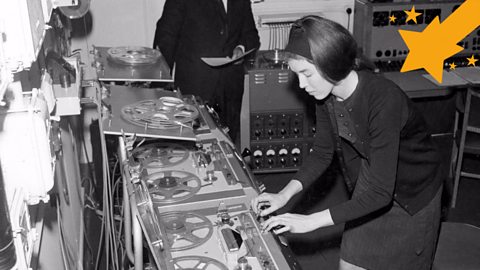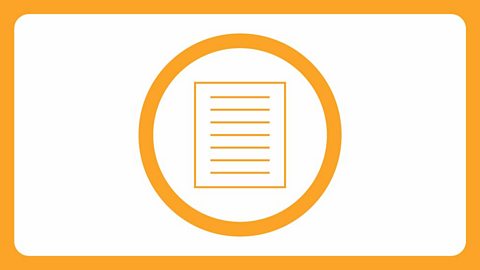
Dates: b. 1937 / d. 2001
Nationality: British
Period: 20th Century

Segun Akinola introduces the Doctor Who theme. Segun became the composer for the show in 2018. We learn how he was inspired by the original work of Delia Derbyshire & Ron Grainer.
Fast Facts
Born in Coventry, as a young girl Delia Derbyshire grew up hearing the eerie sound of air raid sirens. She became fascinated with music (especially composers like Bach and Beethoven) and mathematics, and studied both at Cambridge University.
In 1960 Derbyshire joined the │╔╚╦┬█╠│ Radiophonic Workshop, a special team who provided unusual sound effects and music for radio and TV programmes. The workshop created the sound of the TARDIS and the voice of the Daleks.
Ron Grainer, composer of the Doctor Who theme, always said Delia Derbyshire should receive a co-composer credit for her arrangement but in 1963 the │╔╚╦┬█╠│ preferred to keep the Workshop assistants anonymous so DeliaÔÇÖs creativity wasnÔÇÖt recognised.
Segun Akinola, who became the composer for Doctor Who in 2018, is a big fan of DerbyshireÔÇÖs work and used aspects of her original arrangement in his new version of the showÔÇÖs theme.
Listen to the opening credits of the Doctor Who Theme arranged by Delia Derbyshire.
Doctor Who Theme
ItÔÇÖs one of the most famous theme tunes ever ÔÇô but composer Ron Grainer had only written the very basic tune when he handed over the music to Delia Derbyshire.
Creating the unique sound of the music wasnÔÇÖt easy. In an era before music could be made on computers and synthesizers, it was painstaking work.
Delia had to record hundreds of electrical beeps onto tape, adjust the pitch of each individual note and then splice them all together to create a bass line or a melody.
The end result was music with an otherworldly and mysterious quality ÔÇô itÔÇÖs a musical style we still associate with science fiction today.
Resources
KS3 Lesson plans
Explore and download lesson plans for six weeks of learning and activities for Doctor Who Theme by Delia Derbyshire.

Explore and download powerpoint slides for six weeks of learning and activities for the Doctor Who Theme by Delia Derbyshire.

Download the audio version.

Downloadable .zip file containing arrangement and Derbyshire files.

Downloadable .zip file containing figure notes arrangement.

KS3 Bitesize Ten Pieces study guide
Your students can create their own composition at their own pace with this Bitesize Key Stage 3 guide.

Where next?
Discover how recorded sound is manipulated in amazing ways in Gabriel ProkofievÔÇÖs Concerto for Orchestra and Turntables.
Or see how Wagner used more traditional orchestral music to transport audiences on a fantasy adventure in his Ride of the Valkyries.
Explore our other Figurenotes arrangements and discover more about Inclusive music-making with Ten Pieces
Get creative and upload your responses using the Ten Pieces Uploader!
Upload and showcase your creative responses
Upload your creative responses to the Ten Pieces repertoire for your chance to feature in the Ten Pieces creative showcase.
